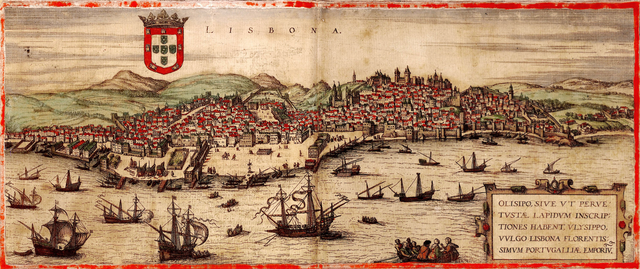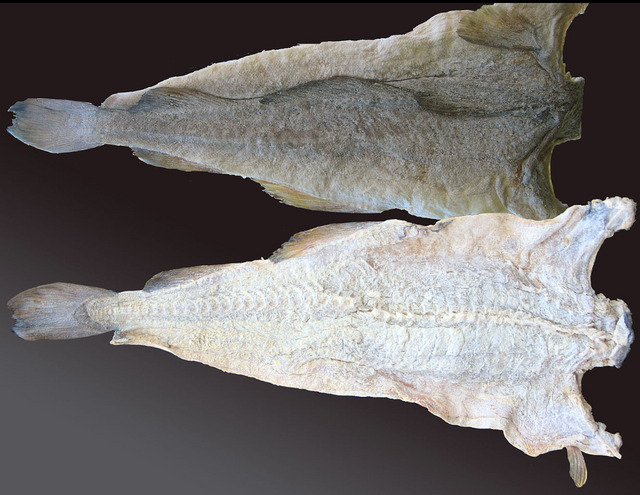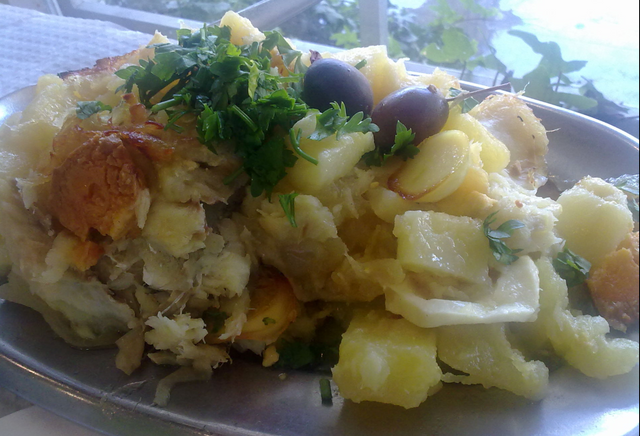A Brief History of Bacalhau (Salted Cod) in Portuguese Society
Background

Franz Hogenberg & Georg Braun—Wikimedia Commons
Portuguese traders were pioneers of the spice trade in the Middle Ages, and introduced a plethora of spices to Portuguese cuisine as a result. The Kingdom experienced the same obsession with novel tastes and sensations as the rest of the European continent, and so spices were used in what would now be considered remarkably excessive amounts. With changing tastes, however, spiced dishes lost their appeal and simple ingredients that were previously considered only fit for the lower classes gained popularity among all strata of the population. The Bacalhau á Portuguesa is an example of the shifting preferences of Europeans, and illustrates the greater trend of replacing spices with simpler ingredients and natural tastes.
Portugal’s hot and humid climate (particularly during the summers) makes preserving food a particularly challenging task. In order to do so, many common foods in the Middle Ages were dried and salted. One example is the Bacalhau á Portuguesa, which is made by soaking one and a half pounds of salted cod for twelve hours, all the while repeatedly changing the water. After this, the cod should be removed from the water and placed in a casserole with sliced pimientos (red sweet peppers), onions and tomatoes. Then it is necessary to add some oil, butter and then to season the dish with salt and pepper, all the while letting it simmer for just over an hour.
Food for the Poor

Karl Ragnar Gjertsen—Wikimedia Commons
It is evident from the absence of spices, the use of salted cod and the simplicity of presentation that the Bacalhau recipe was intended for the lower classes in the Middle Ages. Salt and pepper were simple seasonings, while onions and tomatoes were common vegetables that were regarded as basic by the upper classes of society. Food like this was considered unworthy of royal courts and noble households, and so it rarely made its way to the plates of the wealthy. Yet Bacalhau ended up not just a commoner’s dish, as its place in society over time evolved. The fact that this particular recipe made it into a 1935 collection of international cuisine serves as testament to Bacalhau’s later importance in the international perception of Portuguese food.
Ascent to the Plates of the Wealthy

Adriao—Wikimedia Commons
The dish’s ascent to prominence in higher Portuguese cuisine can be attributed to several factors. First, Bacalhau never left mainstream Portuguese cuisine as it was affordable for all classes due to its low price prior to the 20th century. Second, because of the prohibition of eating meat on certain days such as Fridays and Lent in Catholic nations, fish was consumed instead. This meant that Bacalhau and similar dishes were in effect institutionally preserved. Third, as new international laws limiting fishing were being passed in the 20th century and fishing competition increased (1), cod became costlier, and thus the fish became less common among the lower classes. As its price increased, the middle class began consuming it in greater amounts, thus elevating the status of dishes that made use of the fish.
Finally, and perhaps most importantly, the general European trend in favor of simple ingredients and natural flavors ensured the importance of recipes that employed common ingredients (salt and cod, in this case) (2). As such, Bacalhau took on a role ascribed to it by society
The evolution of Bacalhau’s role and perception in Portuguese cuisine was just one case of a much broader shift in European tastes, but the nature of its prominence (albeit in different strata of society) both before and after the shift is unique. The dish came about by necessity, but took a niche in Portuguese culture (alongside Fado music and Madeira wine) over time due to external forces that shaped both Portuguese and greater European tastes.

Massimo Catarinella—Wikimedia Commons
Works Cited
(1) By, M. K. (1983, Oct 16). Portugal's passion for cod. New York Times
(2) Freedman, P. (2009). Out of the east: Spices and the medieval imagination
Great post :)
Hi! This post has a Flesch-Kincaid grade level of 12.7 and reading ease of 50%. This puts the writing level on par with academic journals.